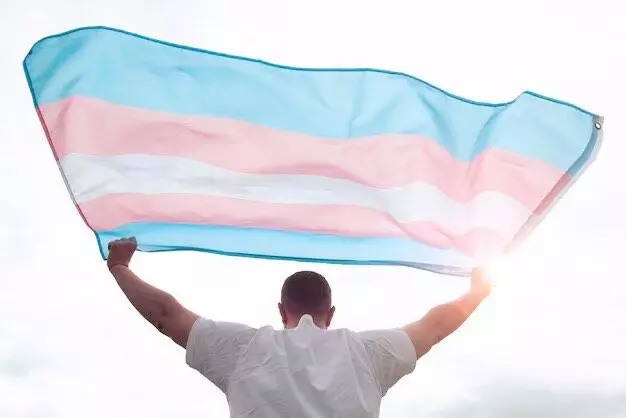Transgender Day of Remembrance: Why trans lives matter all the more
The day began in 1999 as a community-led response to the murder of Rita Hester
By - Anoushka Caroline Williams |
Representational Image
Hyderabad: Transgender Day of Remembrance (TDOR), observed annually on November 20, is a global memorial day that honours transgender and gender-diverse individuals who lost their lives to transphobic violence.
The day began in 1999 as a community-led response to the murder of Rita Hester in the United States. Since then, TDOR has grown into a worldwide observance that documents names, stories, and patterns of violence against transgender people.
The purpose of TDOR is twofold:
1. To remember those who were killed because of their gender identity, often in attacks rooted in stigma, prejudice, and systemic discrimination.
2. To highlight the lived realities that make trans lives disproportionately vulnerable, including social exclusion, homelessness, lack of healthcare access, unemployment, and hate crimes.
While TDOR focuses on those who have lost their lives, it also draws attention to the psychological burden carried by trans individuals who continue to confront the consequences of a society where identity itself can be contested or denied.
Why Identity Debates Become a Mental Health Issue
For many transgender people, their identity is not simply personal; it becomes a subject of constant public discussion. This may involve misgendering, political debates about rights, social media hostility, or institutional barriers like documentation mismatches.
The Pressure of Public Scrutiny
When personal identity becomes a cultural flashpoint, it injures mental security. Repeated exposure to denial, dismissal, or debate around one’s existence creates chronic stress.
“Most people never have to defend the legitimacy of their identity daily. For transgender clients, this defence becomes a continuous psychological task that drains emotional resources,” says Dr. Meera Jain, a queer-affirmative clinical psychologist.
This phenomenon is often described as minority stress, a sustained emotional toll caused by social prejudice and structural inequality.
Constant Defensive Living and Hypervigilance
Living in alert mode
Trans individuals often navigate public spaces with heightened awareness — predicting reactions, avoiding unsafe situations, or preparing for interrogation about their pronouns or appearance. This creates a state of hypervigilance.
According to trauma specialist Farhan Sayed, “Hypervigilance is not a personality trait; it’s an adaptive response to real threats. But when it becomes a daily pattern, it contributes to anxiety disorders and sleep disturbances.”
Over time, the brain’s stress-response system can become overactive, leading to emotional exhaustion.
Identity Denial as Emotional Harm
Microinvalidations and Their Cumulative Impact
Even minor invalidations, misgendering at work, administrative rejection of identity documents, or insensitive jokes, accumulate into psychological strain.
Social behaviour researcher Aloka Sen says, “Repeated invalidation erodes self-esteem. It’s not one incident; it’s the cumulative effect of hundreds of reminders that your identity is considered negotiable.”
These experiences reinforce feelings of insecurity, shame, or invisibility.
Media and Political Discourses as Psychological Stressors
When rights become news topics
Policy debates around bathroom access, healthcare coverage, legal recognition, or sports participation often occur without the inclusion of transgender voices. These debates can feel dehumanising.
The constant public scrutiny signals that trans existence is “up for discussion,” which can intensify fear and self-doubt, especially among younger individuals.
Internalised Stigma and Identity Conflict
Psychological fragmentation
When society questions identity, individuals may internalise fragments of those messages. This can lead to internalised transphobia, a form of self-directed stigma that affects self-worth.
Mental health counsellor Rupa Krishna notes, “Internalised stigma often appears as self-blame, guilt, or loneliness. Many clients ask, ‘Is there something wrong with me?’ because they have grown up hearing their identity being dismissed.”
This psychological conflict can trigger depression, withdrawal, or identity confusion.
Mental Health Outcomes
Research and clinical observations show that chronic identity-related stress contributes to:
• Anxiety disorders
• Depression
• Social withdrawal
• Loss of trust in institutions
• Reduced academic or work performance
• Sleep disorders
• Increased vulnerability to self-harm
It is important to note that these outcomes are not inherent to trans identity. They are consequences of societal stigma.
Community Strength and Coping Patterns
Social Support as a Mental Health Buffer
Peer circles, community leaders, support groups, and chosen families often serve as essential sources of resilience. They provide validation, emotional reinforcement, and safe spaces where identity is affirmed, not debated.
Trans activist and community organiser Kavya R. explains, “We survive because we build support systems. Whether it’s food, medical help, or a late-night phone call, community care is our mental health backbone.”
Many trans individuals also practice grounding techniques, expressive arts, journaling, prayer, and meditation as ways to manage stress.
How Society Can Reduce the Mental Health Burden
1. Affirm identity without debate.
Respect names, pronouns, and self-identification without questioning legitimacy.
2. Strengthen institutional policies.
Schools, workplaces, and governments can reduce stress through clear anti-discrimination frameworks.
3. Promote trans-inclusive healthcare.
Affordable, accessible, and trained mental health support should be standard.
4. Amplify trans voices in public discourse.
Representation reduces stigma and builds understanding.
5. Educate the public on gender diversity.
Awareness programs in schools, colleges, and companies can foster empathy.
When society reduces friction around identity, mental health outcomes improve significantly.
Conclusion
Transgender Day of Remembrance is not only a day to mourn those who have been lost. It is a reminder that the psychological impact of living in a world where identity is contested remains an urgent issue. Chronic exposure to invalidation and public debate places an immense emotional load on transgender individuals.
The path forward requires more than compassion; it requires structural support, social acceptance, and an end to the public interrogation of transgender identity. When identity is affirmed rather than debated, emotional safety becomes possible.